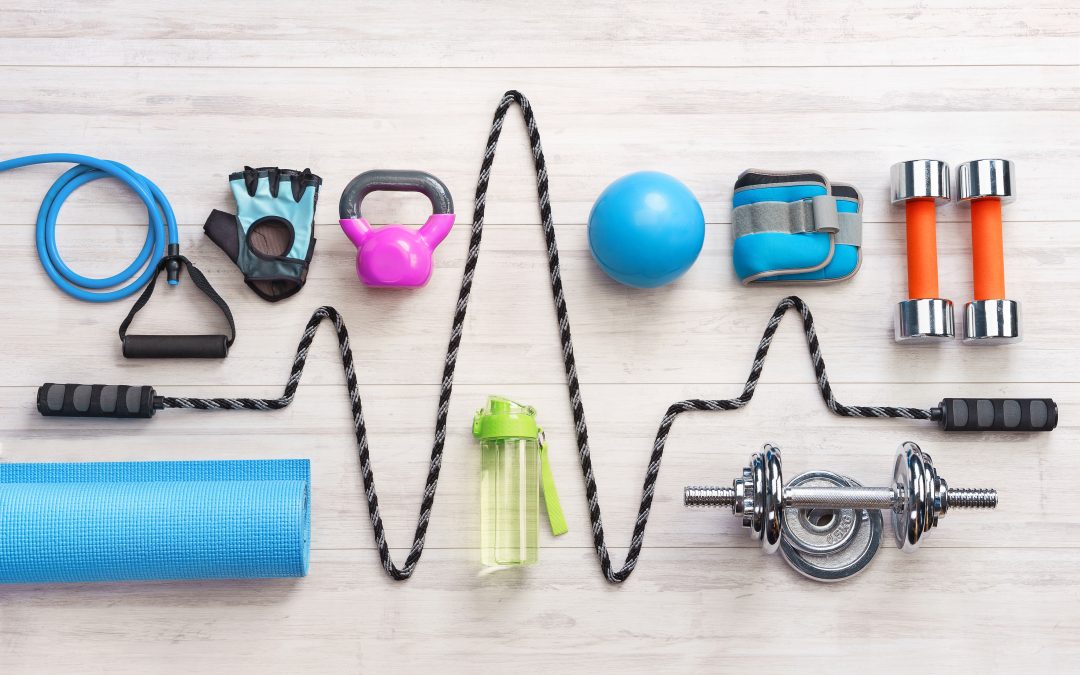It is performing any exercise that causes the muscles to contract against an external force. This force may come in the form of a band, barbell, dumbbells, kettlebell, bottles, ropes, stones, cans of food even, anything that adds resistance to the exercise, which also includes just using your own body weight. You may perform a squat or a lunge with body weight as your resistance or perhaps hold a weight to add further resistance.
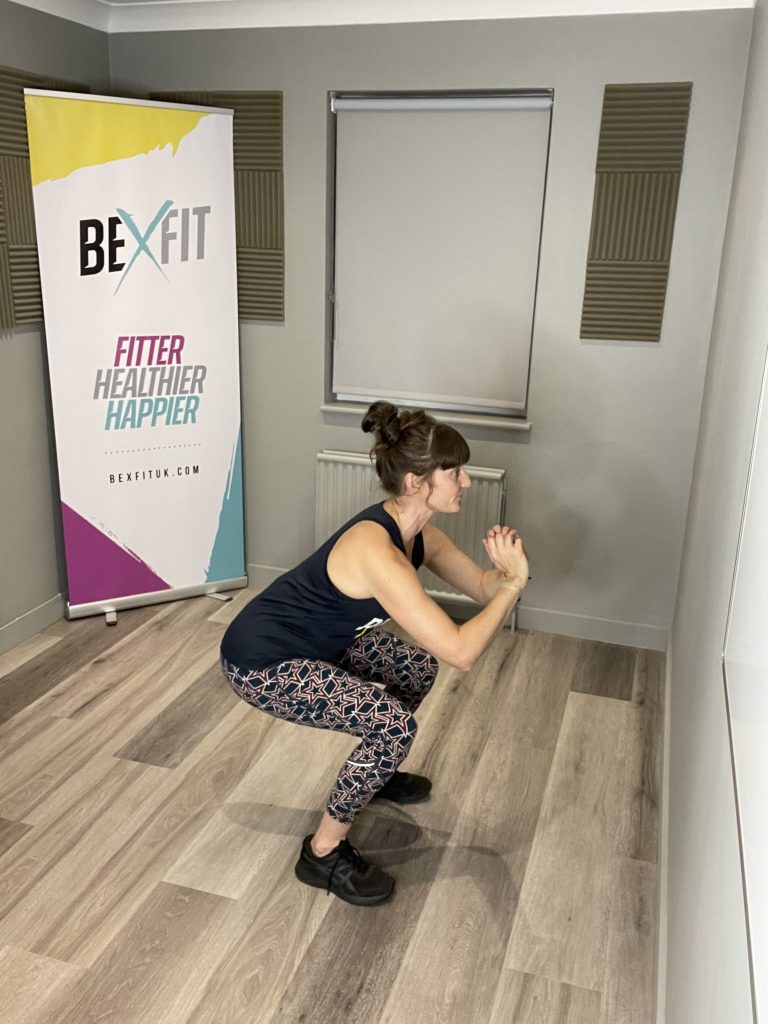
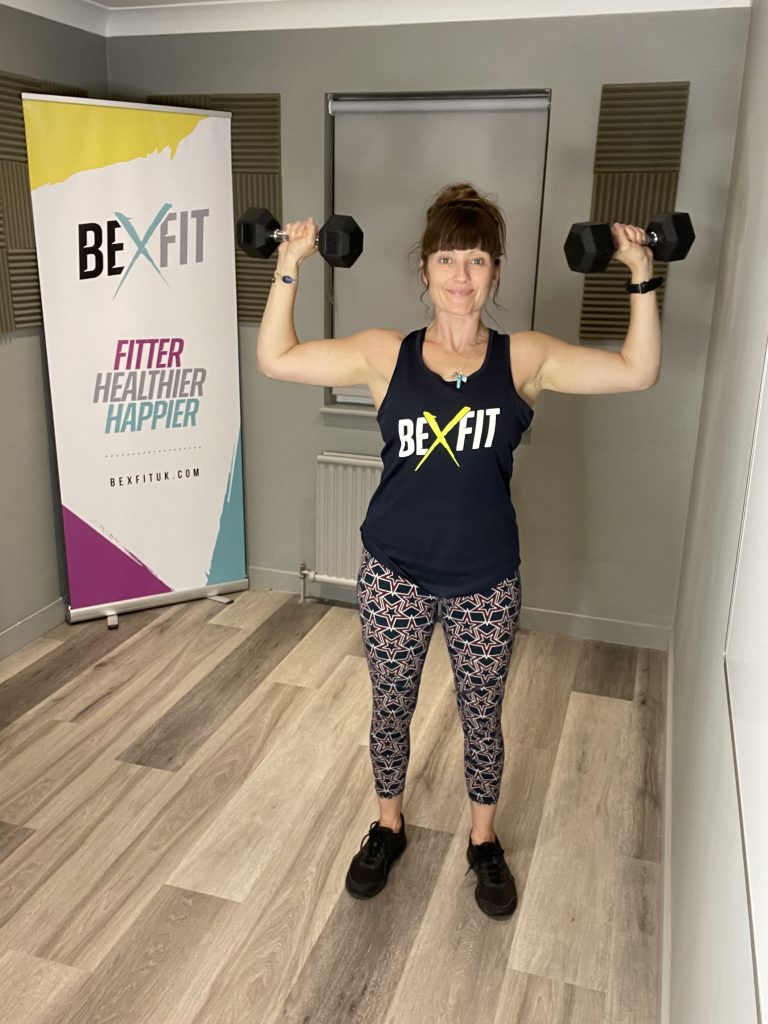
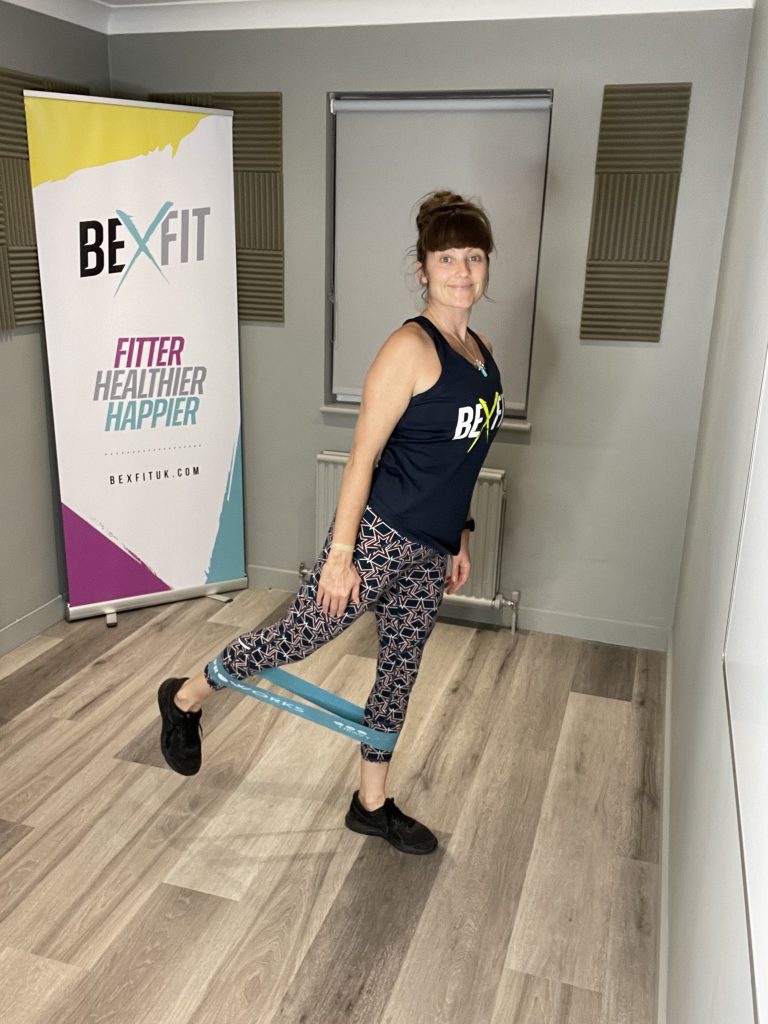
You may also hear it referred to as strength training and yes, you build strength from resistance training but there is a difference between the two as strength is not the main goal of resistance training. However, the primary goal of strength training is, well to build strength! This means lifting bigger and heavier weights at a lower rep range of an exercise to specially get stronger. For example, a weightlifter squatting 100KG has been ‘strength’ training to be able to get that strong to lift that much weight only once.
So why is it important to resistance train & what are the benefits?
There are so many totally awesome, both mental & physical benefits of which I have listed below but I wanted to go into a little more depth for muscle and bone.
Muscle
‘Use it or lose it’ is a phrase commonly used in the world of fitness and used frequently when referring to using muscle! If you train with resistance to gain muscle and then stop for any length of time, you will gradually lose muscle mass. You can however regain this fairly quickly when you return to training thanks to the magic of muscle memory, so it won’t be as hard to regain as it was to build in the first instance. However, something that none of us have control over is the fact that as get older we naturally lose lean muscle mass which is why it is so important that we train in a way that will help maintain this. Also, if we don’t do anything to help maintain it, our body fat percentage will increase over time leaving us with more fat and less muscle to keep us strong and active.
When we train with resistance, we maintain / build muscle which also helps protects our joints from injury whilst creating muscle tone in the body. Also as our bodies shred fat and build muscle it boots our metabolic rate. The more muscle mass you have on your body, the more calories your body burns on a daily basis, even when at rest. So you can sit back, watch a movie knowing your body is burning more calories just sitting on your bum! Win win!
Bones
When we are younger, our bones are thick and strong but as we get older, generally around the age of 25, we start to lose bone density and mass. This happens to everyone, but some people develop Osteoporosis. This means they lose bone density at a much quicker rate which weakens the bones, making them more fragile and therefore they are at much higher risk of a fracture should they fall.
Osteoporosis can develop in anyone but is more commonly found in older people. Women are at higher risk due to the hormone changes that we undergo with menopause. The female hormone oestrogen is important for bone health and after menopause oestrogen levels drop and can lead to a rapid decrease in bone density.
Studies show that resistance training over a period of time can prevent bone loss and may even help to develop and build new bone. How cool is that?
Resistance training has been shown to increase the bone density in the spine and hips, areas that are most likely to be affected by Osteoporosis.
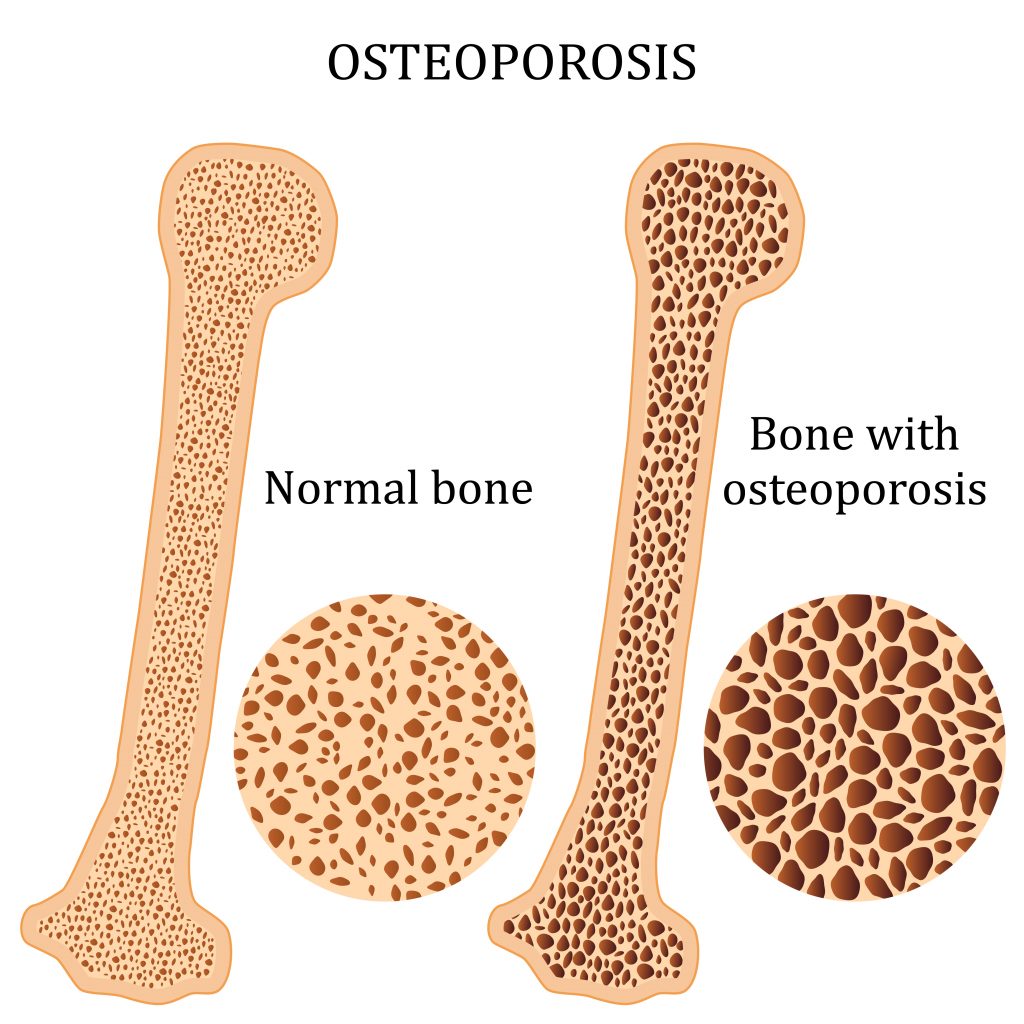
15 more awesome reasons why everyone should resistance train!
- Helps to control or prevent chronic conditions such as diabetes, heart disease, arthritis, back pain, depression and obesity.
- Improves balance
- Improves sleep
- Improves posture
- Improves sense of well being
- Boosts confidence and self esteem
- Decreases anxiety
- Improves focus
- Improves flexibility
- Decreases blood pressure
- Decreases the risk of dementia
- Improves performance at everyday tasks
- Increases self-esteem
- Improves cognitive function
- Decreases cholesterol
I have used the following references as a source of information; –
everydayhealth, Healthline, WebMD, NHS, Pubmed, exerciseright

